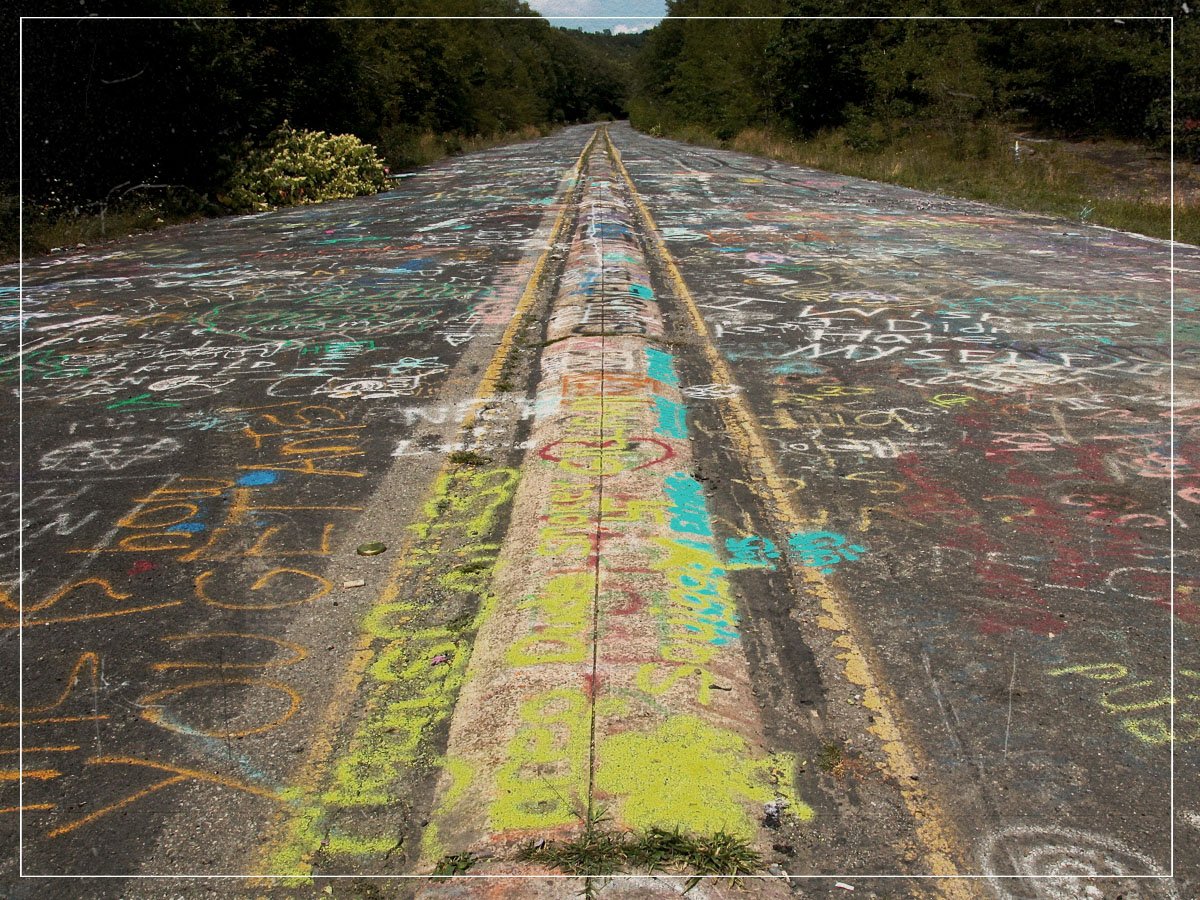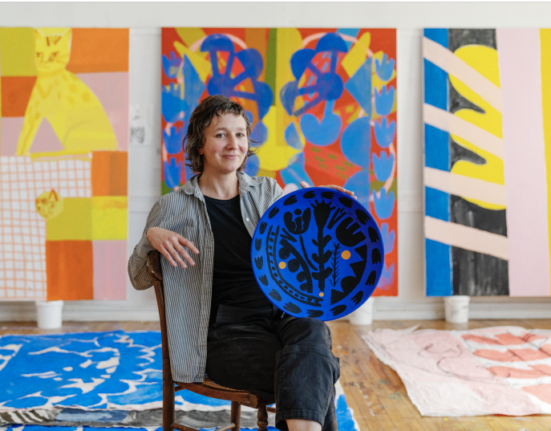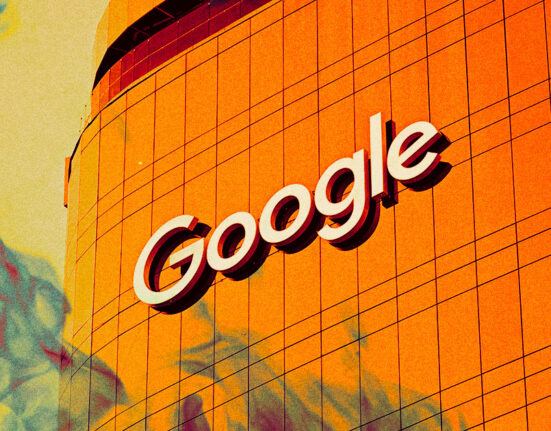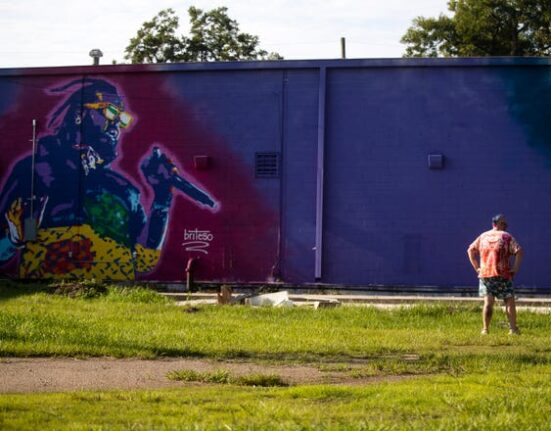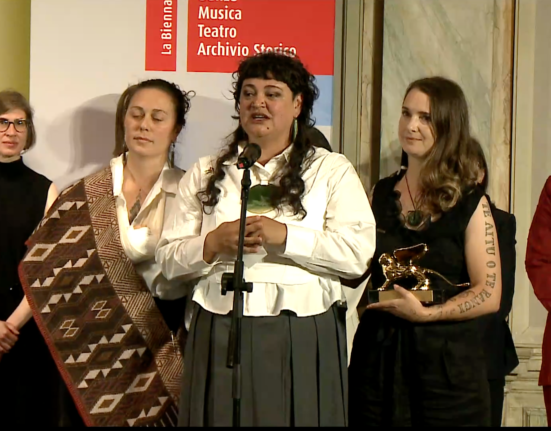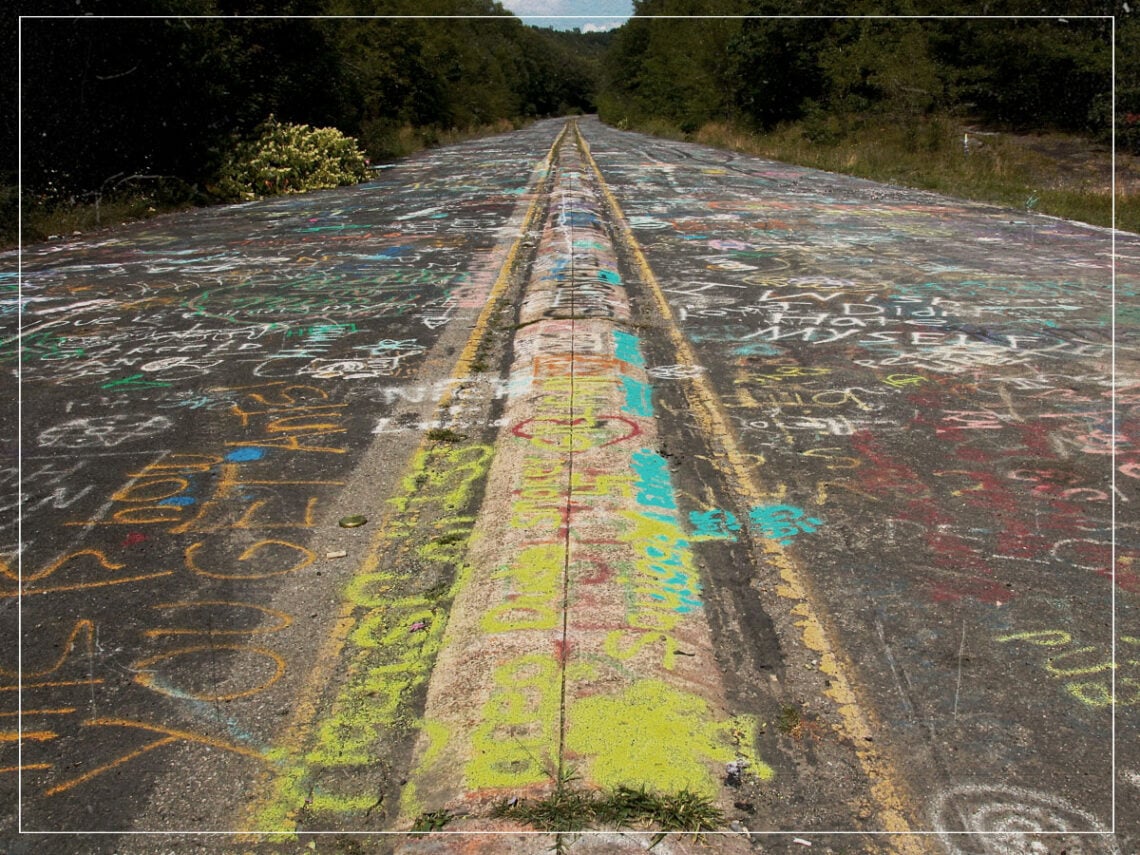
(Credits: Far Out / Robert Miller)
Centralia’s obvious selling point is that it’s a total ghost town and has been since around the mid-1980s, and everything about the place is clouded in mystery. Firstly, there’s the fact it’s been on fire since 1962, which is what led to the town being abandoned in the first place. And then there’s the fact people from all over America continually visit its long empty roads because rather than cultivating a New Orleans-esque following based on its inherent spookiness, it cultivated an entirely different following of people who flocked to its rural highway to create art.
Although in one particularly cynical 1998 travel book, Centralia is described by the author as “the strangest, saddest town I believe I have ever seen”, beneath the initial wasteland it promises is a thriving public art space, lovingly referred to as Graffiti Highway.
Roads like Grafitti Highway are essentially all that’s left in the Pennsylvanian town after a continual blaze laid ruin to it. But it’s not in the sense you might imagine – not one house ever burned down. There have been decades-long valiant attempts to extinguish the underground coal fire that started emitting toxic gas, all unsuccessful. While there were no burning buildings, the ground was partially collapsing, and the gases could kill.
But the long cracks that randomly appeared were the thing that finally introduced some people back. As of 2020, only five residents remained, but you’d find a mile-long stretch of highway on Pennsylvania Route 61 bore colourful evidence of constant visitors.
At first, most of them were enticed by the huge fissures in the road, racing bikes up and down the uneven land on late nights. At one point, a few kids decided to spray graffiti on the pavement. It had none of the visual impact the highway does now because it was only a few scribbled symbols at the beginning.
But then it started to catch on. Almost every square inch was covered by random symbols, names, and numbers, which overlapped to the point it became one big multicoloured paint job. Even members of the public, too scared to add to the layers of the graffiti, would engage with it, and it’s a favourite spot of photographers because there’s something so disconcerting about a public art space that locals barely ever see.
Graffiti Highway, thanks to the enduring commitment of a few mischievous visitors, is a beautiful segment of public art space. Nobody seized on it to make it an attraction, which would have been tempting given nobody visits, let alone stays, in Centralia. In the face of toxic fumes and a potentially deadly coal fire, the many make-shift artists of the Highway created something other than the town’s burning embers to be remembered by.

